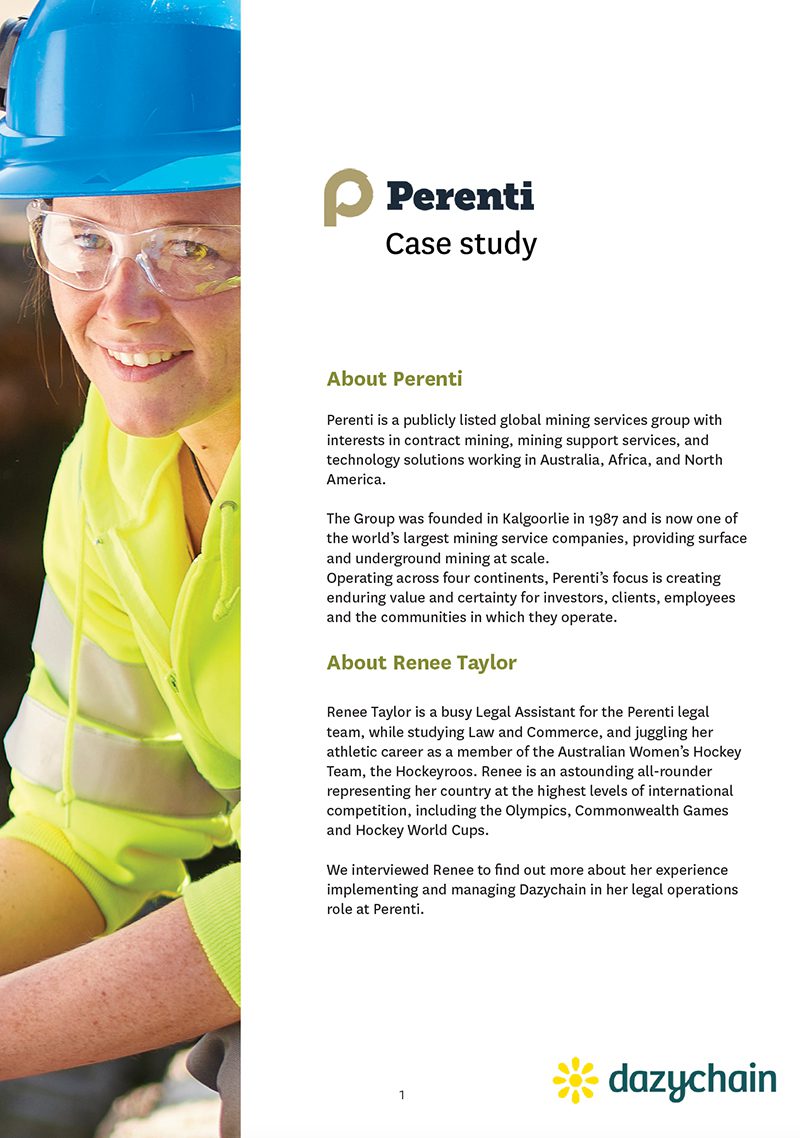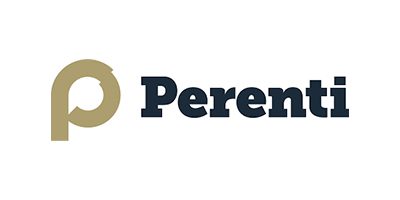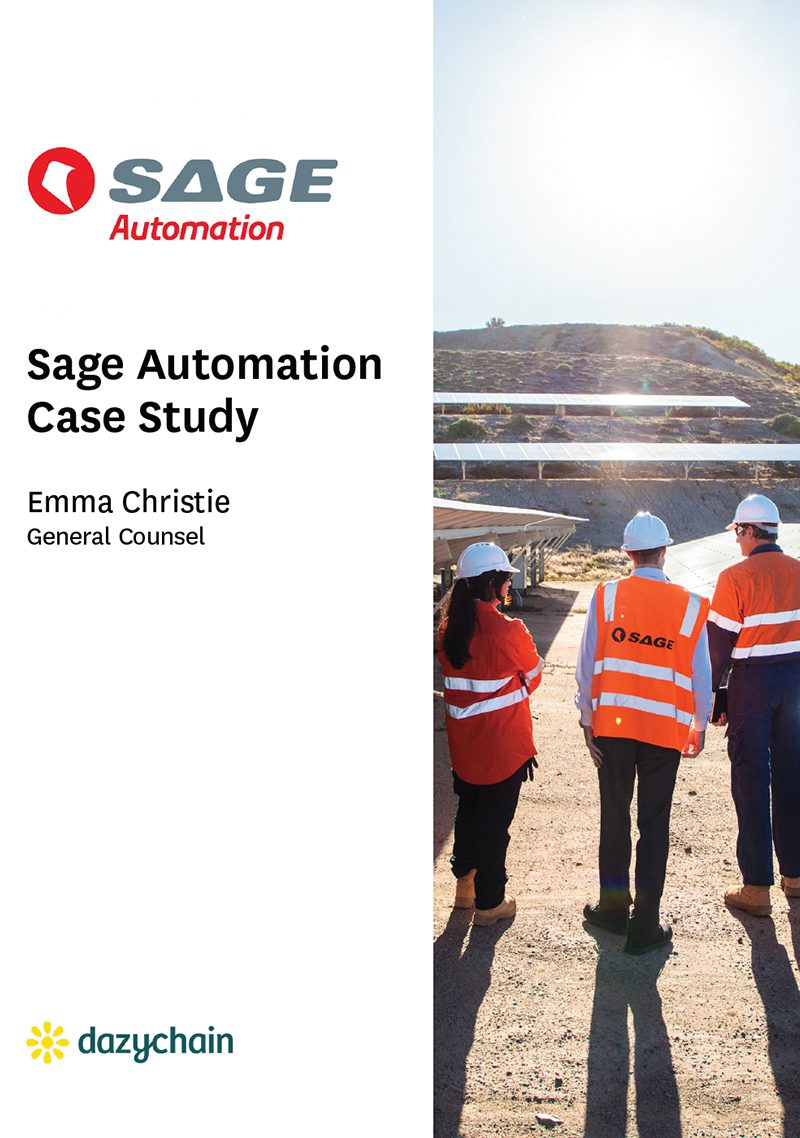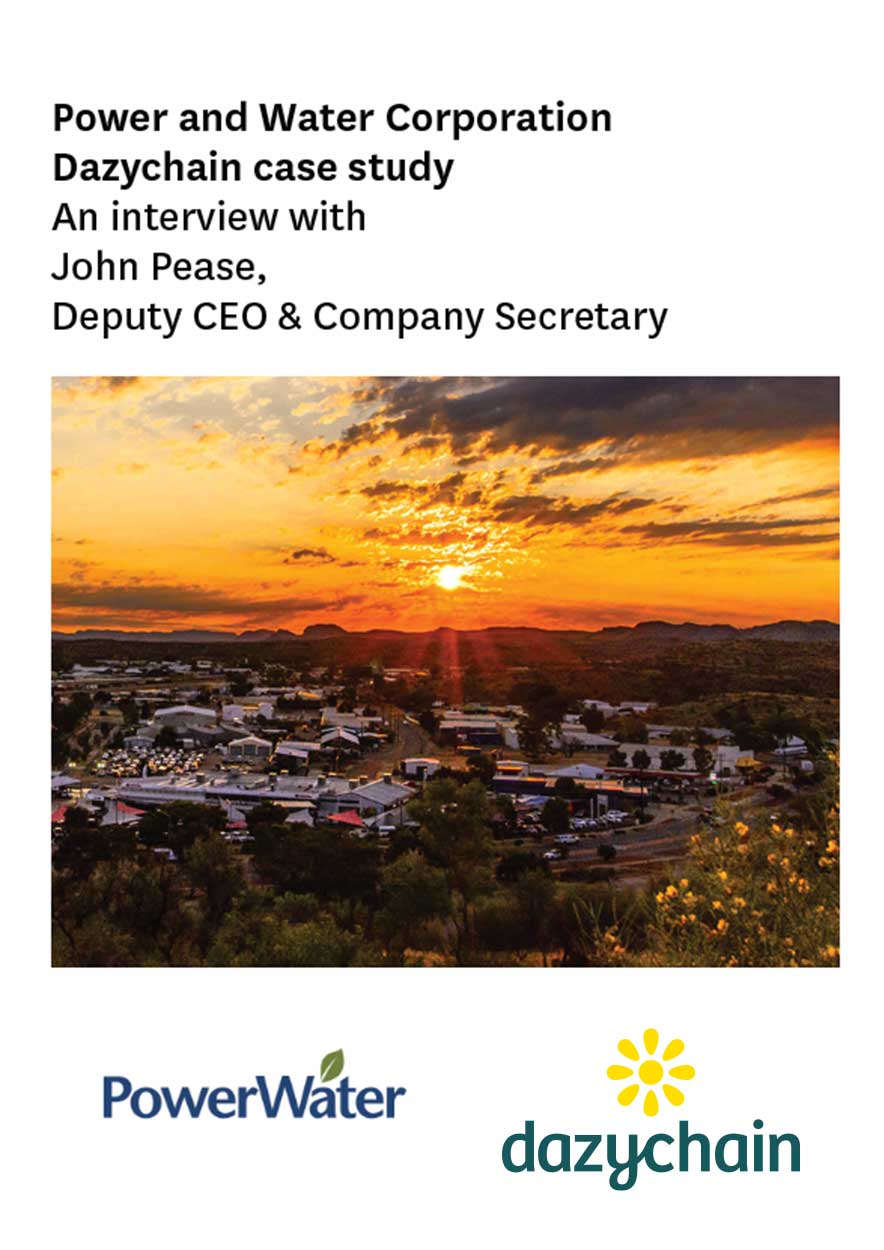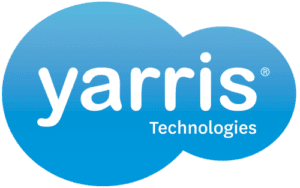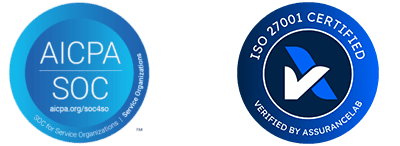Perenti Case Study
About Perenti
Perenti is a publicly listed global mining services group with interests in contract mining, mining support services, and technology solutions working in Australia, Africa, and North America.
The Group was founded in Kalgoorlie in 1987 and is now one of the world’s largest mining service companies, providing surface and underground mining at scale.
Operating across four continents, Perenti’s focus is creating enduring value and certainty for investors, clients, employees and the communities in which they operate.

About Renee Taylor
Renee Taylor is a former Legal Assistant for the Perenti legal team, while studying Law and Commerce, and juggling her athletic career as a member of the Australian Women’s Hockey Team, the Hockeyroos. Renee is an astounding all-rounder representing her country at the highest levels of international competition, including the Olympics, Commonwealth Games and Hockey World Cups.
We interviewed Renee to find out more about her experience implementing and managing Dazychain in her legal operations role at Perenti.
About the Perenti Legal Team
Renee Taylor said, “The legal team provides commercial legal advice, including contract negotiations, commercial issues arising and guidance to our operations and leadership teams in contract negotiations and standards, disputes or advice that arises through operations and general day-to-day business.
We’re proactive, adaptive, and reactive. We focused on what the business needs at a particular point in time, as well as planning key projects and strategic advice proactively.
Contract management and contract registers
We primarily use Dazychain for our contracts register. Dazychain allows us to store the contract information in the cloud and provides the contract details tab that we’ve created to record commencement dates, end dates, mobilization dates, extension terms, and previous end dates if we’ve extended contracts.
“Dazychain enables us to access not only the group mining register, but allows us to split each entity up so we can assess, “What are our contracts looking like in Australia? What do they look like in Africa? What are they looking like in North America?” And because we’re such a diverse business we can split those matters out into each entity for reporting.
The most helpful thing that we’ve found with Dazychain is the ability to store tasks, documents, and emails with individual matters. If someone leaves, is away, or isn’t available for a particular reason, anyone in our commercial legal team can just jump into that particular matter and see all the history. We have all the emails, multiple versions of drafts, contract negotiation notes, and the full history of the matter. If we’re renewing a contract or negotiating a contract with a new client, we can look back to see what we’ve previously agreed under these circumstances and why we’ve agreed to it.
Our use of Dazychain evolved over time, which I think is probably the great thing about Dazychain. We can change the system based on our needs to make a new workflow or report. For example, we created reports on our legal spend with external advisors, insurance obligations, deliverable details, and dashboard reports.”

Centralizing legal matters
It’s easy to find things. Dazychain allows us to collate information in one central location so we know it’s going to be there. We split up most of our sites into two essential projects under Dazychain. We have our general support project that we create for each site, but on top of that, we create our contract project for each site. So in that contract project, the only thing that we’re saving in there is final executed documents. And then in that general support folder, we’re saving negotiations, reviews, and advice we’ve provided on-site or to our ops team, which allows us to then differentiate between the two.
In Dazychain, we set the deliverables and use a naming convention. I know I can go into the contract folder and the only thing that’s going to be there is the executed version as opposed to having to flick through multiple drafts and different versions to find that final version.
Managing the legal operations challenge My job was to make it easy for the team, asking, “What’s the easiest way for us to make this work?” Because at the end of the day, if systems and processes are complex, they’re unlikely to be followed. If we can make a simple process that’s understood and easy to implement, they’re more likely to follow the process.
It did take a lot of thinking, teamwork and collaboration. We had lots of conversations about the ways we wanted to work together. Everyone within our team made sure that we agreed on the approach, and once we agreed on why we were doing it that way, it made it a whole lot easier. And because we are using the system to find that information daily we know, “I can access this folder and I know all my signed variations and the contract is going to be there and I can download it or share it.”
Finding key documents with Dazychain search
We’ve definitely saved time on finding key information and documents. We often receive messages or emails asking us to provide 10 or more contracts. And instead of having to flick through folders and files or email people and contact people, we know exactly where it is. It’s in Dazychain. We access our contract register, click on it, it takes us to the project and the deliverable that we need, we download it, it’s sent.
I can provide multiple versions of our different contracts, rather than having to have access to someone’s email who might have potentially left the company. We know it’s in Dazychain.
We jump on Dazychain, it’s a quick search in the search bar, “Have we reviewed something for this person before?” Search. The global search provides everything. It’s a really good starting point for anything that we want to review. But then on top of that, it’s a really good way for us to be able to know exactly where our information is when we need to provide it.
We also share documents with people internally, and we set up Dazychain to get a few of our external law firms on board. At the moment, it’s mainly for invoicing purposes. Our external law firms upload invoices so we keep track of them and know the current status of our payments.
Managing our internal clients
I look back to when I first started, there was no contracts register. We didn’t have a visual on where the contracts were saved, who had them, or what they looked like. Whereas now it’s so easy for anyone in the team to say, “Here’s the end date for this contract.” Instead of having to look manually through the contract and then any extensions to go, “What are the terms?”
Dazychain streamlined the process to make things a whole lot easier for not just me but across our team, for everyone to have access. We use Dazychain’s document sharing, red-line markup and tracking with our internal clients, which saves time as well because it stops people from then messaging and calling the team. Internal clients can just access key documents directly without needing to go through the legal and commercial teams.
Outlook integration
We use the Outlook add-in the most. We save documents from email, and it gives us prompts of where to save this project and helps you if you’re creating a new one. We can also drag and drop emails and include attachments without having to individually drag each attachment. And it’s just a simple drag and drop.
Dashboards for resource allocation and invoice status
The dashboard data provides overview snapshots of where we’re working and what we’re working on. We can also track invoice spend and narrow it down to different regions and countries because we’re working globally. We can ask, “How much are we spending in Australia? North America? Africa?” Dazychain allows us to create overview snapshots of answers to questions like, “How busy are we? What is the team working on now? What’s most urgent?” At different points in time, different people want to know where they’re spending their time.
Dazychain also allows the team to use the data. They can see if they are spending a lot of time on a particular matter, and whether they may need additional assistance. It also enables the General Counsel to check a quick overview before weekly meetings to see the team’s activities. We can see all of the team’s activities at a glance, and discuss the work together.

The top Dazychain matter management benefits for Perenti
Dazychain key advantages for us are: tracking matters, collaborating on complex matters, creating seamless transitions between people on a particular matter, and having full access to all parts of a matter.
Interestingly, there are multiple ways to use Dazychain. It works for both simple and complex matters. It’s cloud-based, so it’s easily accessible, and it’s relatively easy to understand. Dazychain has a clear structure of projects, project deliverables and follow-through requirements. It works especially well if you’re getting a lot of work in and need to assign it out to different team members.
Advice for teams implementing matter management software
The most important part of implementing a system is ensuring the entire team is involved in the process, and getting buy-in from the people who are going to use it. I can create work processes, folder structures, project set-up and naming conventions however I like, but at the end of the day, if it doesn’t work for my team, it’s not going to be effective. If it doesn’t make sense to anyone else, you’re not going to get that buy-in. It’s important to ask the team, “What do you need? What do you want to report on? What do you need to see? How do you want things to flow?”
I’m constantly having conversations about Dazychain, asking the team if there’s something they need or want to report on, because it’s so easy to update and change, and that’s included in the subscription.”
Interested in discussing Dazychain solutions?
Perenti Case Study
Renee Taylor
Former Legal Assistant
Perenti
About Perenti
Perenti is a publicly listed global mining services group with interests in contract mining, mining support services, and technology solutions working in Australia, Africa, and North America.
The Group was founded in Kalgoorlie in 1987 and is now one of the world’s largest mining service companies, providing surface and underground mining at scale.
Operating across four continents, Perenti’s focus is creating enduring value and certainty for investors, clients, employees and the communities in which they operate.

About Renee Taylor
Renee Taylor is a former Legal Assistant for the Perenti legal team, while studying Law and Commerce, and juggling her athletic career as a member of the Australian Women’s Hockey Team, the Hockeyroos. Renee is an astounding all-rounder representing her country at the highest levels of international competition, including the Olympics, Commonwealth Games and Hockey World Cups.
We interviewed Renee to find out more about her experience implementing and managing Dazychain in her legal operations role at Perenti.
About the Perenti Legal Team
Renee Taylor said, “The legal team provides commercial legal advice, including contract negotiations, commercial issues arising and guidance to our operations and leadership teams in contract negotiations and standards, disputes or advice that arises through operations and general day-to-day business.
We’re proactive, adaptive, and reactive. We focused on what the business needs at a particular point in time, as well as planning key projects and strategic advice proactively.
Contract management and contract registers
We primarily use Dazychain for our contracts register. Dazychain allows us to store the contract information in the cloud and provides the contract details tab that we’ve created to record commencement dates, end dates, mobilization dates, extension terms, and previous end dates if we’ve extended contracts.
“Dazychain enables us to access not only the group mining register, but allows us to split each entity up so we can assess, “What are our contracts looking like in Australia? What do they look like in Africa? What are they looking like in North America?” And because we’re such a diverse business we can split those matters out into each entity for reporting.
The most helpful thing that we’ve found with Dazychain is the ability to store tasks, documents, and emails with individual matters. If someone leaves, is away, or isn’t available for a particular reason, anyone in our commercial legal team can just jump into that particular matter and see all the history. We have all the emails, multiple versions of drafts, contract negotiation notes, and the full history of the matter. If we’re renewing a contract or negotiating a contract with a new client, we can look back to see what we’ve previously agreed under these circumstances and why we’ve agreed to it.
Our use of Dazychain evolved over time, which I think is probably the great thing about Dazychain. We can change the system based on our needs to make a new workflow or report. For example, we created reports on our legal spend with external advisors, insurance obligations, deliverable details, and dashboard reports.”

Centralizing legal matters
It’s easy to find things. Dazychain allows us to collate information in one central location so we know it’s going to be there. We split up most of our sites into two essential projects under Dazychain. We have our general support project that we create for each site, but on top of that, we create our contract project for each site. So in that contract project, the only thing that we’re saving in there is final executed documents. And then in that general support folder, we’re saving negotiations, reviews, and advice we’ve provided on-site or to our ops team, which allows us to then differentiate between the two.
In Dazychain, we set the deliverables and use a naming convention. I know I can go into the contract folder and the only thing that’s going to be there is the executed version as opposed to having to flick through multiple drafts and different versions to find that final version.
Managing the legal operations challenge My job was to make it easy for the team, asking, “What’s the easiest way for us to make this work?” Because at the end of the day, if systems and processes are complex, they’re unlikely to be followed. If we can make a simple process that’s understood and easy to implement, they’re more likely to follow the process.
It did take a lot of thinking, teamwork and collaboration. We had lots of conversations about the ways we wanted to work together. Everyone within our team made sure that we agreed on the approach, and once we agreed on why we were doing it that way, it made it a whole lot easier. And because we are using the system to find that information daily we know, “I can access this folder and I know all my signed variations and the contract is going to be there and I can download it or share it.”
Finding key documents with Dazychain search
We’ve definitely saved time on finding key information and documents. We often receive messages or emails asking us to provide 10 or more contracts. And instead of having to flick through folders and files or email people and contact people, we know exactly where it is. It’s in Dazychain. We access our contract register, click on it, it takes us to the project and the deliverable that we need, we download it, it’s sent.
I can provide multiple versions of our different contracts, rather than having to have access to someone’s email who might have potentially left the company. We know it’s in Dazychain.
We jump on Dazychain, it’s a quick search in the search bar, “Have we reviewed something for this person before?” Search. The global search provides everything. It’s a really good starting point for anything that we want to review. But then on top of that, it’s a really good way for us to be able to know exactly where our information is when we need to provide it.
We also share documents with people internally, and we set up Dazychain to get a few of our external law firms on board. At the moment, it’s mainly for invoicing purposes. Our external law firms upload invoices so we keep track of them and know the current status of our payments.
Managing our internal clients
I look back to when I first started, there was no contracts register. We didn’t have a visual on where the contracts were saved, who had them, or what they looked like. Whereas now it’s so easy for anyone in the team to say, “Here’s the end date for this contract.” Instead of having to look manually through the contract and then any extensions to go, “What are the terms?”
Dazychain streamlined the process to make things a whole lot easier for not just me but across our team, for everyone to have access. We use Dazychain’s document sharing, red-line markup and tracking with our internal clients, which saves time as well because it stops people from then messaging and calling the team. Internal clients can just access key documents directly without needing to go through the legal and commercial teams.
Outlook integration
We use the Outlook add-in the most. We save documents from email, and it gives us prompts of where to save this project and helps you if you’re creating a new one. We can also drag and drop emails and include attachments without having to individually drag each attachment. And it’s just a simple drag and drop.
Dashboards for resource allocation and invoice status
The dashboard data provides overview snapshots of where we’re working and what we’re working on. We can also track invoice spend and narrow it down to different regions and countries because we’re working globally. We can ask, “How much are we spending in Australia? North America? Africa?” Dazychain allows us to create overview snapshots of answers to questions like, “How busy are we? What is the team working on now? What’s most urgent?” At different points in time, different people want to know where they’re spending their time.
Dazychain also allows the team to use the data. They can see if they are spending a lot of time on a particular matter, and whether they may need additional assistance. It also enables the General Counsel to check a quick overview before weekly meetings to see the team’s activities. We can see all of the team’s activities at a glance, and discuss the work together.

The top Dazychain matter management benefits for Perenti
Dazychain key advantages for us are: tracking matters, collaborating on complex matters, creating seamless transitions between people on a particular matter, and having full access to all parts of a matter.
Interestingly, there are multiple ways to use Dazychain. It works for both simple and complex matters. It’s cloud-based, so it’s easily accessible, and it’s relatively easy to understand. Dazychain has a clear structure of projects, project deliverables and follow-through requirements. It works especially well if you’re getting a lot of work in and need to assign it out to different team members.
Advice for teams implementing matter management software
The most important part of implementing a system is ensuring the entire team is involved in the process, and getting buy-in from the people who are going to use it. I can create work processes, folder structures, project set-up and naming conventions however I like, but at the end of the day, if it doesn’t work for my team, it’s not going to be effective. If it doesn’t make sense to anyone else, you’re not going to get that buy-in. It’s important to ask the team, “What do you need? What do you want to report on? What do you need to see? How do you want things to flow?”
I’m constantly having conversations about Dazychain, asking the team if there’s something they need or want to report on, because it’s so easy to update and change, and that’s included in the subscription.”
